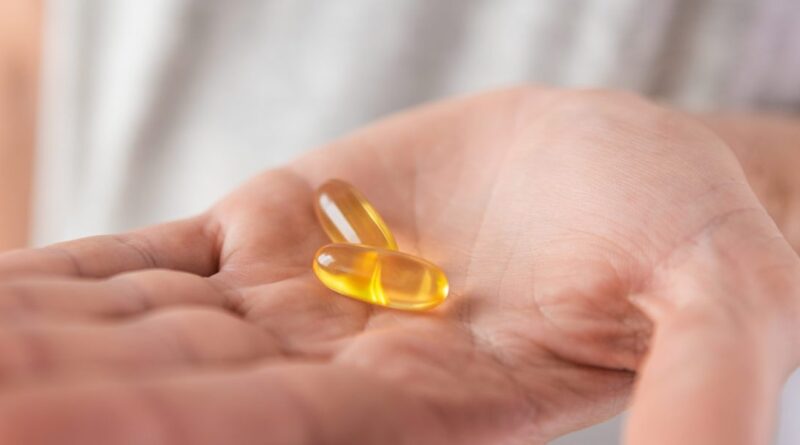Vitamin D for energy: Here’s what the science says
You may have heard that vitamin D can be important for bone health, and that taking supplements can be helpful if you don’t get enough naturally from the sun or foods that contain it. and D such as eggs, fatty fish or fortified milk.
You’ve probably heard that vitamin D has been shown to improve cognitive function and reduce the risk of heart disease.
It may be interesting news to know that vitamin D can increase your energy.
That makes sense, since, according to the Cleveland Clinic, some of the main symptoms of vitamin D deficiency in adults are fatigue, muscle weakness, and low mood, which can lead to feeling down and tired. .
What is Vitamin D?
Vitamin D, also called calciferol, is a fat-soluble vitamin found in food, either naturally or through fortification, and through supplements, according to the National Institutes of Health Office of Dietary Supplements. It is also produced in the body’s cells when ultraviolet (UV) rays from sunlight hit the skin, which creates vitamin D.
However, regardless of the source, vitamin D must be absorbed into the body—first by the liver, which converts vitamin D into calcidiol, and then by the kidneys, which make what is known as and calcitriol.
Once vitamin D is active, it promotes calcium absorption in the intestines, prevents muscle spasms and spasms, and leads to healthy bone growth.
Vitamin D also plays a role in reducing inflammation, immune function and glucose metabolism.
What does science say about vitamin D and energy?
A fair amount of research supports the idea that vitamin D can help put a pep in your step.
A study published in a journal Medicine compared the results of two groups with fatigue and vitamin D deficiency—one was given a vitamin D supplement, the other a placebo. In just four weeks, the group given vitamin D experienced significant improvements in energy levels.
Similarly, a small study from the UK found that vitamin D is important for making our muscles work better and boosting energy levels. It showed that muscle function improves with vitamin D supplementation, suggesting that fatigue may be caused by “decreased activity of mitochondria: the ‘energy stations’ inside each cell of the body.” the body.”
One study of soccer players found a link between vitamin D and improved athletic performance; another found that vitamin D improved the energy levels of recent kidney transplant patients. Researchers have even linked vitamin D insufficiency to the chronic fatigue of fibromyalgia, and fatigue and weakness in premenopausal women.
Do I need a vitamin D supplement?
Before rushing to take D supplements, experts recommend seeing your doctor to check for vitamin D deficiency and rule out other conditions.
“If someone is dealing with low energy, my first reaction would be to recommend a series of tests before considering supplements,” Dr. Elizabeth Sharp, internist and medical director of Health Meets Wellness, New York City, once said. Good luck. “Making a vitamin deficiency test, such as vitamin D and vitamin B12, especially for people who eat vegetables, is important. In addition, I would check for thyroid diseases if other symptoms indicated such a condition, and I would also avoid anemia and iron deficiency. It is important to correctly identify the cause to ensure appropriate and effective treatment.”
Experts warn that supplements won’t help if you’re deficient in nutrients. However, the Harvard journal says: “It is very difficult to get the vitamin D you need from your diet; fatty fish and fortified dairy products are the only important sources.” The 2013-2016 National Health and Nutrition Examination Survey (NHANES) data showed that 92% of men, more than 97% of women were consuming an inadequate amount of vitamin D each day from food and drinks. So supplements can make sense for many adults.
Once vitamin D supplements are determined to be appropriate, be careful when purchasing.
“Be careful with supplements that are much cheaper than others or that look like a good thing,” Jolene Brighten, a naturalist and author naturopathic endocrinologist. Is This Normal?said earlier Good luck. “Often these use low-quality materials, and in some cases, because they are not regulated, they will not actually have what is listed on the label.”
Consumers may also want to contact the National Institutes of Health [Office of Dietary Supplements] as well as subscription-based sources, such as Consumer Lab, which look at content from potential contaminants to ensure that the supplement is what it claims to be.
How much vitamin D do you need?
The recommended daily intake for adults up to age 70 is 600 IU and 800 IU for adults over 70, according to the NIH. Brighten adds, “it’s also important to get enough sunlight.” He also emphasizes the importance of testing D levels to help determine what you need.
Don’t overdo it on supplements, experts warn. Taking too much vitamin D can be toxic in rare cases, such as an 89-year-old UK man who died in March of an episode of vitamin D toxicity (even though he had conditions several).
Additionally, the Office of Dietary Supplements notes that vitamin D can interact negatively with other medications, including statins and steroids, so be sure to check with your doctor.
More on nutrition and supplements:
#Vitamin #energy #Heres #science
